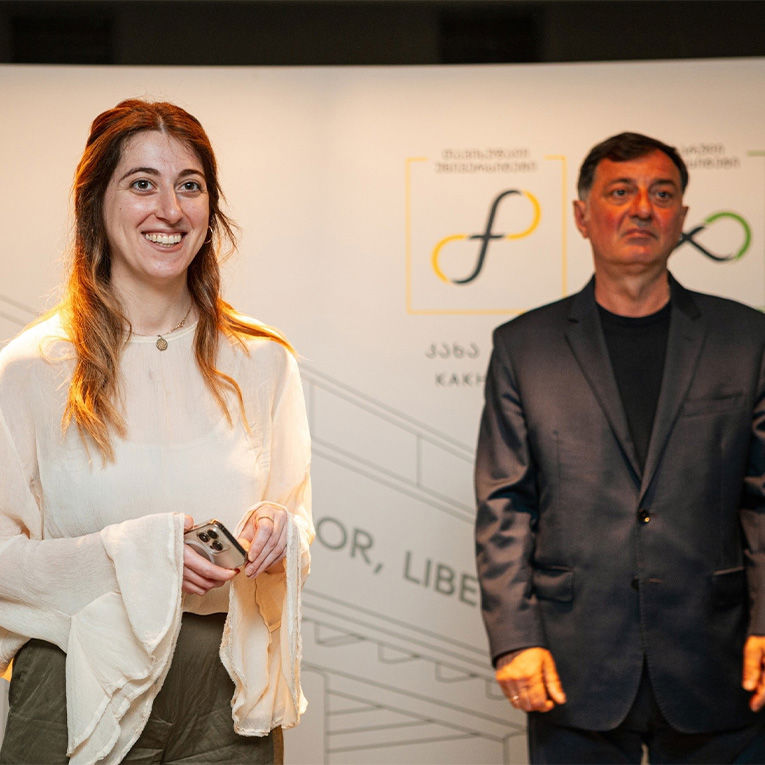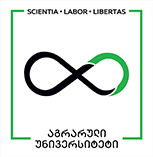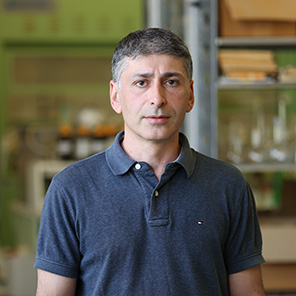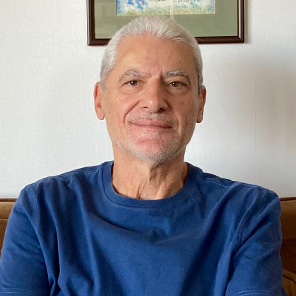School of Natural Sciences and Biotechnology
The Master's Program in Natural Sciences is a joint program of the Agricultural University of Georgia (School of Natural Sciences and Biotechnology) and the Free University of Tbilisi (Graduate School of Social and Natural Sciences).
The Agricultural University of Georgia and the Free University of Tbilisi have exceptional resources (highly qualified faculty, state-of-the-art facilities, international connections) that allow them to collaboratively prepare master's candidates in biology, chemistry, and physics.
With combined resources, the Free University of Tbilisi and the Agricultural University of Georgia create a unique environment for conducting research and educational activities in accordance with international standards, as well as for fostering interdisciplinary studies.
The program is founded on high standards of learning and modern practices, namely:
- Internationalization - the Joint Master's Program in Natural Sciences is crafted to align with international standards and industry demands. Throughout the program's development, successful models from both the US and Europe were examined and taken into consideration. Drawing from these models, the curriculum emphasizes an individualized approach to education and is therefore designed to accommodate a limited number of students. The program's faculty comprises top researchers in the country with extensive experience in overseeing Master's and PhD studies. Additionally, they actively engage in scientific collaborations with prominent foreign research centers and institutes, providing a robust foundation for the program's success.
- Research-Orientation - the Joint Master's Program in Natural Sciences is designed as a teaching and research-focused initiative, aligning with the Europe 2020 strategy for higher education modernization. A key objective of the program is to empower master's students to conduct research at international standards. To achieve this, both the content and structure of the program are crafted to emphasize in-depth exploration of research problems chosen by students based on their interests, with the active support of advisors.
- Action-Oriented Learning - the Free University of Tbilisi and the Agricultural University of Georgia prioritize action-oriented learning (learning-by-doing). Teaching laboratories facilitate this approach, enabling students to learn by actively engaging in laboratory work. Each student has their own workspace equipped with the necessary tools for hands-on learning, thus improving students' learning outcomes.
- Individualized Approach - the program offers a curriculum designed with an individualized approach, providing a wide range of course choices. Over half of the program's credits are allocated to practical and laboratory courses customized to the individual interests of each student. This individualized approach entails that:
a) In preparing the Master's Thesis, each student engages in intensive work beyond the course load, guided by tutors, under the direct supervision of their advisors and with the assistance of ongoing consultations from other academic staff involved in the program.
b) In addition to mandatory courses, students are given the opportunity to draw up their own study plans (based on the advisor's recommendation) aligned with their research interests. This applies to both elective courses and optional laboratory work (in the case of biology-chemistry).
Such an individualized approach implies that several faculty members are consistently involved in the teaching and research activities of each master's student.
Upon successful completion of the program, the graduate is awarded one of the following qualifications, depending on the specialization:
- Master of Physics
- Master of Chemistry
- Master of Biology
As the Master's Program in Natural Sciences in interdisciplinary by nature and is implemented by the Free University of Tbilisi and the Agricultural University of Georgia, the academic staff of both universities are involved in the management of the programs:
- Professor Giorgi Jorjadze of the Free University of Tbilisi is head of the physics component.
- Professor Nina Kulikova of the Agricultural University of Georgia is head of the biology component.
- Professor Revaz Korashvili of the Agricultural University of Georgia is head of the chemistry component.
The duration of the program is 2 years.
Curriculum
The curriculum for the Master's Program in Natural Sciences is designed to fulfill the program's objectives and consists of 120 credits distributed across following components:
- Common Mandatory Component
- Field of Study Mandatory Component
- Research Component
- Master's Thesis
Common Mandatory Component aims to equip students with the methodological tools and skills necessary for the field.
Field of Study Mandatory Component comprises three modules, each totaling 10 credits. Within each module, 5 credits are dedicated to intensive tutorials and independent work conducted under the guidance of the module tutor, while the remaining 5 credits are fulfilled through an elective course chosen by the student. Thus, each module entails multi-component work overseen by the student's scientific advisor and/or module tutor.
The Research Component can be divided into two directions:
- The research component for chemistry and biology involves three optional laboratory rotations, laboratory practice in a biological and chemical laboratory and a graduate seminar. During laboratory practice, students will undergo practical training in educational and scientific biological and chemical laboratories, where they will master the daily, routine methods of working in laboratories of this profile, and refine manual work techniques. Within the scope of the graduate seminar, the student will process the latest scientific literature surrounding their research topic, regularly prepare material for discussion with their advisor and prepare a literature review in the form of a written paper at the end of the course. As part of the laboratory rotation, the student will attend laboratory seminars, study specific laboratory research methods, laboratory work rules and conduct research experiments. After completing the experimental work, the student will present their research results.
- The research component for physics includes the following: 1) Graduate Seminar, Research Preparation I and Research Preparation II. All three components involve the production of practical and/or theoretical work necessary for the Master's Thesis. At each stage, the student works under the supervision of the advisor and on the basis of the agreed timeframe.
The Master's Thesis is an academic work completed by the student as a result of independent research. The Master's Thesis is completed at the final stage of the program, in which the student synthesizes acquired theoretical knowledge, analytical skills and academic/field research and techniques. Working on a Master's Thesis and its successful completion equips the student with the necessary skills for further academic pursuits at the doctoral level and also prepares them for conducting research with practical applications.
How to apply to the Joint Master's Program in Natural Sciences?
In the 2023-2024 academic year, 5 graduate students will be admitted to the program.
Who can apply?
An applicant of any professional background can apply if they meet the following criteria:
- Overcome the minimum competence threshold in the Unified Masters Examination
- Have at least B2 level English language competency
Admissions Procedure
- Registration at the National Examination Center website (www.naec.ge)
- Passing Unified Masters Examination
- Fill out the Master’s Program Application
- Interview at the Free University of Tbilisi/Agricultural University of Georgia
Tuition Fee
The tuition fee for each semester of the program is 2475 GEL.
Tuition fees are paid per semester - in four equal payments.
The program offers funding opportunities to successful master's students: students will be given the opportunity to participate in both domestic and international scientific grant projects, or become research and/or teaching assistants to fund their studies.
About the School
The Agricultural University of Georgia School of Natural Sciences and Biotechnology offers 4 bachelor's programs:
- Bachelor’s Program in Chemistry
- Bachelor’s Program in Biology
- Bachelor’s Program in Food Technology
- Bachelor’s Program in Viticulture-Winemaking
Additionally, the School of Natural Sciences and Biotechnology offers the following:
- Master’s Program in Agricultural Sciences with the School of Agronomy and Landscape Management
- PhD Program in Agricultural Sciences with the School of Veterinary Medicine and the School of Agronomy and Landscape Management
The School of Natural Sciences and Biotechnology programs emphasize laboratory and hands-on learning. Laboratory and practical studies are conducted using the action-based teaching method (learning-by-doing), allowing students to learn the profession through individual work, completing tasks, tests, and analysis independently. Additionally, student groups in laboratory studies are limited to no more than 20 people, which in turn positively impacts learning outcomes.
Students at the School of Natural Sciences and Biotechnology engage in laboratory and practical studies in the fields of physics, chemistry, biology, food technology, microbiology and other subjects at teaching laboratories located at Kakha Bendukidze Campus.
Student's of the Bachelor’s Program in Viticulture-Winemaking are also provided lectures and practical training at the Agricultural University of Georgia Viticulture and Winemaking Academy and its winery, where they create their own signature wines through independent work.
In addition to the campus teaching laboratories, the students of the Bachelor's Program in Food Technology also have practical lessons at the Culinary Academy of the Agricultural University of Georgia.
Additionally, many of the school's faculty are directly and actively involved in research, including significant international projects, within the infrastructure of the Agricultural University of Georgia's scientific institutes. This involvement provides students with the opportunity to engage in scientific research from the undergraduate level, if they wish to do so. It also offers a valuable opportunity for students in master's and doctoral programs to conduct in-depth research alongside experienced researchers.

11 July 2025
8000 მოსავალმა მეექვსედ უმასპინძლა აგრარული უნივერსიტეტის სტუდენტების ღვინის დეგუსტაციას

04 July 2025
სტუდენტური ღვინის ფესტივალი 2025

30 June 2025
სურსათის უვნებლობის მენეჯმენტის პროგრამის პირველმა ნაკადმა წარმატებით დაასრულა სწავლა.

16 June 2025
ნანი ჯომარჯიძემ სტაჟირება საფრანგეთში გაიარა
Dean

Head of the program



Coordinator







